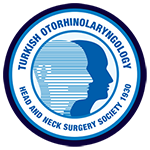Editorial board members play a pivotal role in the publication process of scientific journals, such as assessing the suitability of manuscripts for review, selecting appropriate reviewers, and making final decisions regarding acceptance or rejections. Since publishing in scientific journals is a key means for researchers to gain academic promotion and recognition, journal editors have a considerable influence on the academic careers of scientists. Journal editorial board members are typically chosen from experts in their field, many of whom are not full-time professionals and manage their editorial responsibilities alongside their academic work. As active and productive researchers, they may prefer to publish their studies in their journals. Editorial self-publication denotes the practice whereby members of an editorial board publish their own research in the journals for which they hold editorial responsibilities (1). Although there are no specific restrictions on this practice, being an editor-as-author (EAA) can raise significant concerns, including potential conflicts of interest, bias, and favoritism.
Leading international publication ethics guidelines, including those from the International Committee of Medical Journal Editors and the World Association of Medical Editors, have outlined general frameworks and precautions concerning editorial self-publication (2, 3). In summary, the guidelines do not impose any restrictions on serving as an EAA, provided that a transparent review process is maintained, ensuring no undue advantages are granted to the editorial members. Additionally, the guidelines suggest that editorial members should avoid submitting articles to their journals when suitable alternatives are available (2, 3).
There is limited data in the literature regarding the self-publication practices of journal editors. Liu et al. (4) conducted a comprehensive analysis of editorial publication patterns among 20,000 journal editors and found that 12% of editors published at least 20% of their papers in their own journals, while 6% published at least 33%. Helgesson et al. (5) performed a systematic review on the prevalence of editorial self-publication and identified significant variation across academic fields, with self-publication ranging from negligible to extensive.
Research on editorial self-publication remains scarce in medical journals, particularly within specific specialties. In otorhinolaryngology, Bayram et al. (1) investigated the prevalence and characteristics of editorial self-publication, analyzing 795 editorial board members from 12 Science Citation Index-Expanded journals in 2023. They found that 185 editors (23.3%) had at least one instance of EAA, with rates ranging from 11.3% to 41.5% across different journals. The editorial members were listed as an EAA in 290 of the 2106 articles (13.8%), with a range of 5.7% to 54.5%, and original articles were the most common type of editorial self-publication. The authors concluded that the prevalence of editorial self-publication varies widely among otorhinolaryngology journals, similar to findings in other fields.
As a conclusion, editorial self-publication is a significant issue that stakeholders in the scientific community should recognize. The review process for such articles must be transparent, ensuring objective and unbiased evaluation. EAAs should refrain from participating in the review and decision-making processes of their submissions and adhere to the recommendations outlined in international publication ethics guidelines regarding editorial self-publication. Further studies investigating editorial self-publication practices across different scientific disciplines, including otorhinolaryngology, could help in establishing mechanisms for self-regulation and addressing ethical concerns effectively. The Turkish Archives of Otorhinolaryngology’s editorial board is resolutely dedicated to maintaining the highest ethical standards in academic publishing. Our board diligently follows international rules and best practices to ensure that editorial self-publication is carried out with honesty, fairness, and accountability.



